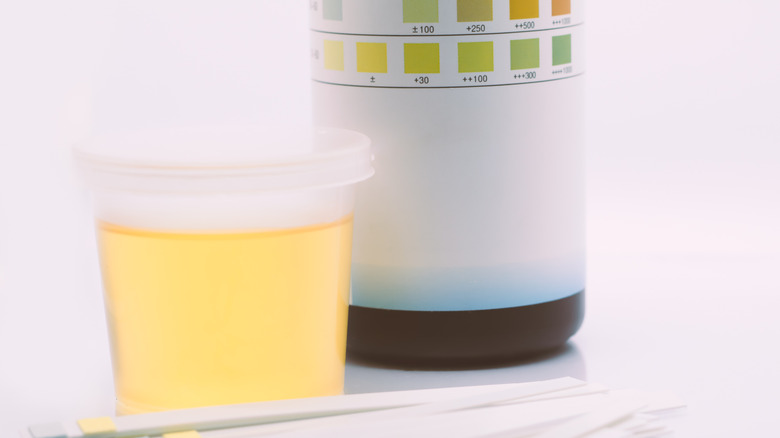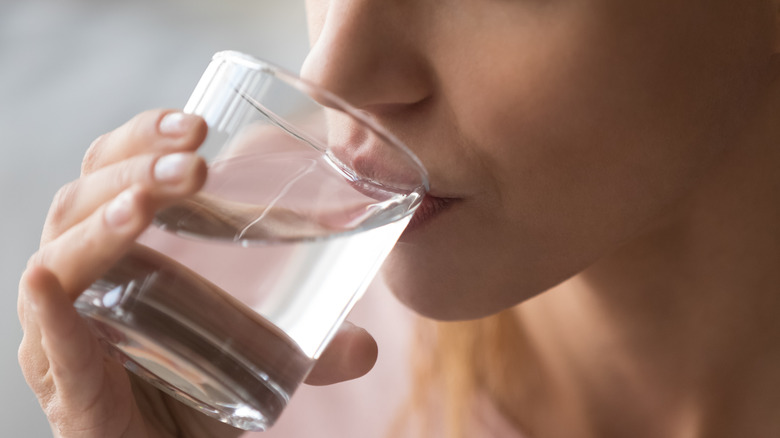This Is What Color Your Pee Should Actually Be
It's something you do every day, but how often do you stop to think about the color of your pee? It's worth noting when going to the bathroom, as it can tell you something about your health and whether or not you're drinking enough water.
Urine is mainly water combined with electrolytes and other waste (via Cleveland Clinic). Its natural color comes from a compound known as urochrome, which provides the naturally yellow pigment (via Mayo Clinic). When your body is running low on water, your pee becomes darker and more concentrated.
In healthy adults, the color of pee ranges from nearly clear, to a shade of light yellow. If your pee resembles these colors, it is considered to be normal, and suggests that you are well-hydrated. Urine with a darker yellow color is still considered fairly normal, but suggests you might be mildly dehydrated.
However, amber or honey-colored urine is a sign that you are dehydrated, and should drink a glass of water sooner rather than later.
What different colors of urine can mean
Water is not the only thing that affects the color of your urine. Certain foods, supplements, and medications might also temporarily change the color of your urine.
A neon yellow shade of pee can indicate that you have too much vitamin B in your system, though this is generally nothing to worry about (via Healthline).
When urine begins to look more orange or brown in color, this generally indicates dehydration. However, it can also be a sign of problems with your liver or bile ducts.
If you've recently consumed foods such as beets, blueberries, or rhubarb, your pee might appear red or pink in color. However, red or pink urine on a regular basis could be an indication of kidney stones, a bladder tumor, or an enlarged prostate.
Food coloring, as well as certain medications, can cause the appearance of blue and green urine. Additionally, familial benign hypercalcemia is a genetic condition that can also turn pee blue. These colors might also indicate a possible bacterial infection (via Mayo Clinic).
Clear urine can mean that you are over-hydrated, and too much water in your system can be dangerous and even toxic in some cases. So while aiming for more clear pee is the goal, you'll want to be sure not to overdo it.


